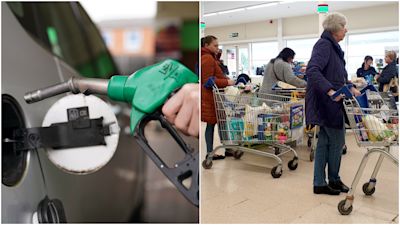Insight
Higher UK prices at the pump, till and at home predicted as Ukraine invaded

At the petrol pumps, through our energy bills and in our food cupboards - Russia's actions are now likely to affect UK consumers.
Warnings of higher prices are already being issued - and it all comes as millions already face a ferocious cost of living crisis.
The cost of crude oil rose above $100 a barrel on Thursday for the first time since 2014 as international markets responded to the risk of disruption.
The RAC's petrol prices analyst Simon Williams put it starkly: "Russia’s actions will now push petrol pump prices up to an average of £1.50 a litre very soon.
"The question then becomes where will this stop and how much can drivers take just as many are using their cars more and returning to workplaces."
Longer term there is the very real prospect of oil hitting even higher prices - at $110 a barrel the average pump price could be £1.55 a litre.
Increased petrol prices are a double blow for customers, hitting them hard at the pumps and also adding to the cost of other goods we all rely on.
It will squeeze inflation rates ever higher, leaving households facing rising costs across the board. Food prices are vulnerable to these factors because production and deliveries can be energy intensive.
The UK only gets around 6% of oil and 5% of gas from Russia, but we will still see an impact.
As oil prices rise, so does the cost of other sources of energy. This puts upward pressure on how much we pay for gas - already wholesale prices are moving up sharply as a result of the Ukraine invasion.
This means that at best our energy prices are likely to remain high and volatile - but we should expect new record highs for energy prices as this situation deteriorates.
The UK's FTSE 100 index of share prices fell 2.5% on Thursday - with similar drops around the world.
Even if you do not directly own shares, you may be affected. Millions of us have pension savings which are linked to stock markets.
This should not have an immediate impact unless you are retiring in the very near future.
The economic upheaval is very likely to hit consumer confidence making households less willing to spend - and that will hit businesses as they struggle to recover from the pandemic.